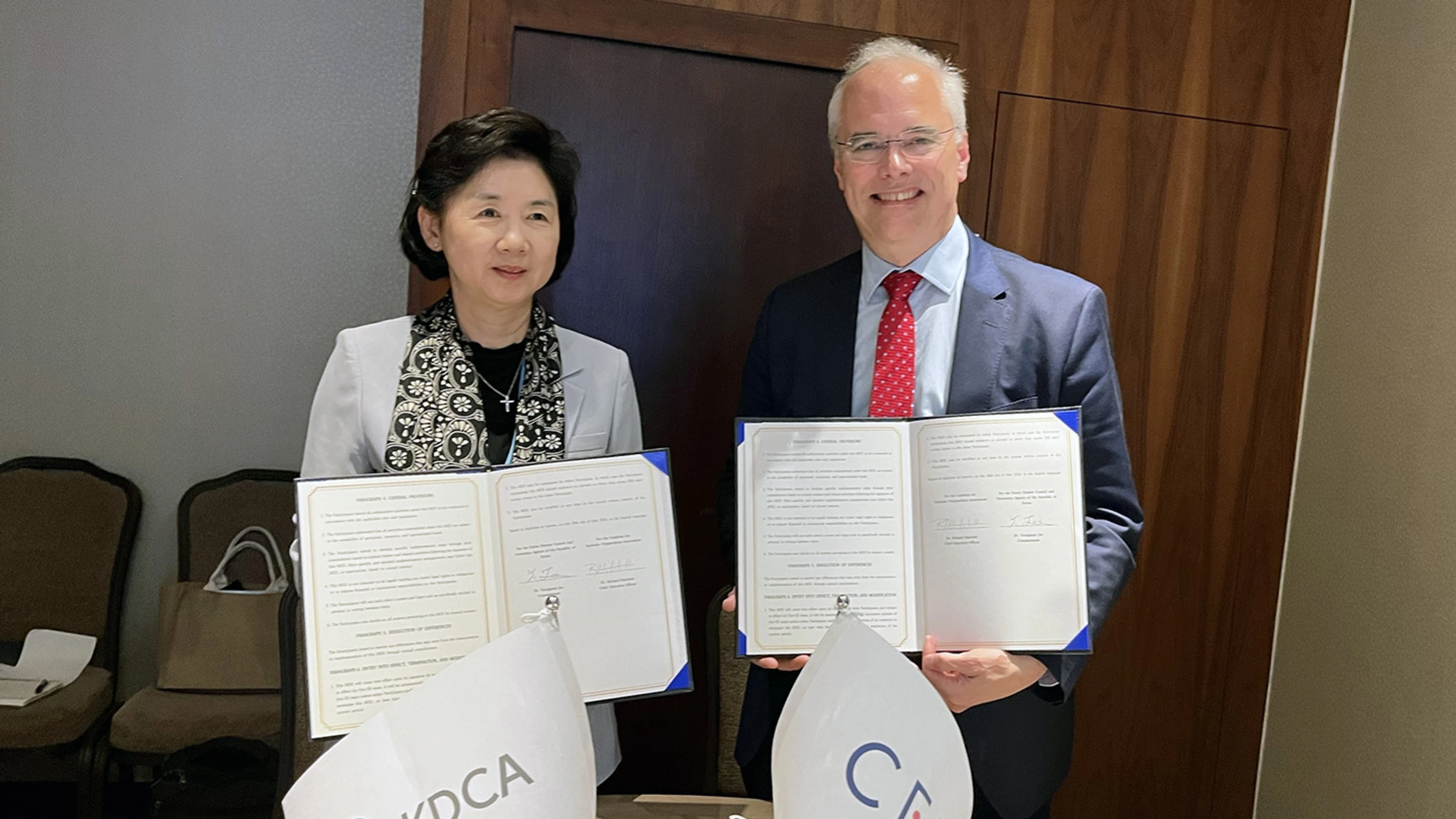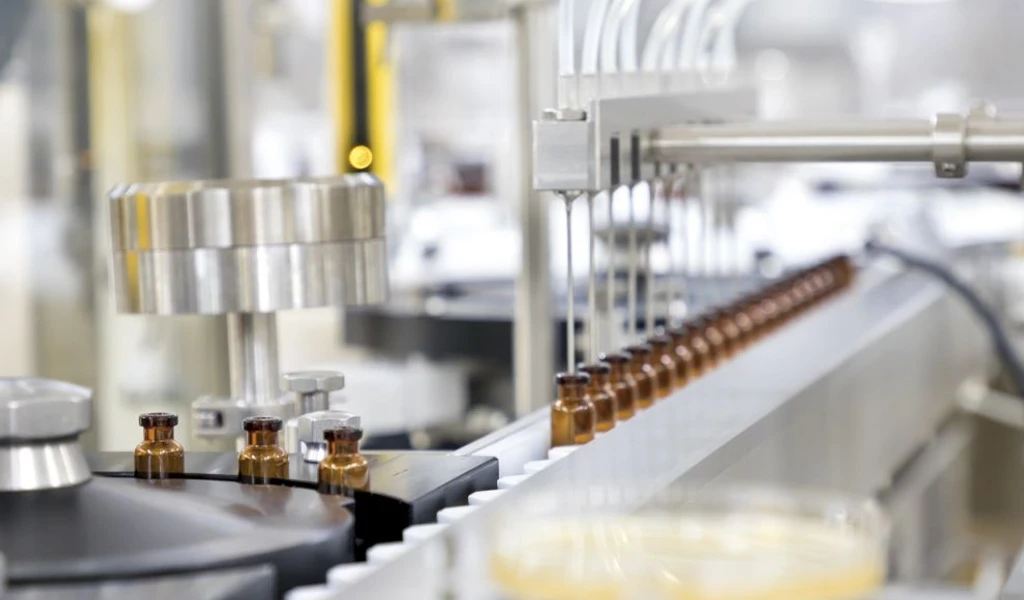- Korea Disease Control and Prevention Agency to work with CEPI to accelerate new pandemic vaccines
- Joint commitment set out today on the margins of the World Health Assembly in Switzerland
- CEPI holds existing partnerships in Korea, supporting national and global pandemic preparedness
OSLO/SEOUL, 28 May – In the wake of COVID-19, global health experts atKorea Disease Control and Prevention Agency (KDCA) and CEPI are joining forces to help protect Korea and the world from future deadly disease outbreaks.
Signed today on the margins of the World Health Assembly in Geneva, Switzerland, through a Memorandum of Understanding, their joint commitment sets out a plan to work together and accelerate the development of vaccines and other biological countermeasures against public health threats. This includes known infectious diseases like Middle East Respiratory Syndrome (MERS), Ebola, and mpox as well as a future but as-yet-unknown pathogen with pandemic potential, ‘Disease X’.
The Memorandum of Understanding was signed today by Dr Youngmee Jee, Commissioner of the KDCA, and Dr Richard Hatchett, CEO of CEPI.
“Global collaboration was crucial to advancing the development of lifesaving vaccines and medicines against the devastating COVID-19 pandemic. Unfortunately, new epidemic diseases, or even a new pandemic, could emerge at any time. We must continue to leverage the power of partnerships and one another’s expertise to ward off another to be prepared for the next Disease X” said Dr Richard Hatchett, CEO of the Coalition for Epidemic Preparedness Innovations (CEPI).
CEPI and KDCA intend to collaborate on scientific research projects and laboratory capacity-building. The two organisations may also share information relating to pathogens and cutting-edge pandemic-response technologies, like mRNA platforms and artificial intelligence, to advance their joint response efforts.
Together, this collaboration can help advance the 100 Days Mission. The ambitious objective, spearheaded by CEPI and embraced by Korea and other G20 countries, seeks to condense vaccine development to around 100 days from pathogen identification. This is around a third of the time it took to create a COVID-19 vaccine. The faster safe and effective vaccines are developed and deployed, the faster a looming pandemic can be contained and controlled and those at highest risk can be protected as swiftly as possible.
Dr Richard Hatchett added: “Vaccines are central to Korea’s national strategic priority to advance biotechnologies, and KDCA are in a prime position to support our 100 Days Mission target. By working together towards this shared goal, we are moving towards a future in which pandemics no longer threaten our way of life.”
Dr Youngmee Jee, Commissioner of the KDCA, said: “Developing safe and effective vaccines is essential to overcome emerging infectious diseases. By strengthening international cooperation with organizations like CEPI, we could successfully prepare for and respond to the next pandemic.”
CEPI was launched in 2017 after the response to the West African Ebola epidemic fell tragically short with a consensus that a coordinated, international plan was needed to accelerate the development of new vaccines against emerging viral threats.
KDCA forms part of Korea’s Ministry of Health and Welfare. Since 2020, the Korean Government has committed US $33 million to CEPI to advance its work against epidemic and pandemic diseases.
CEPI’s R&D investments have supported a number of world-leading academic and pharmaceutical partners to advance scientific programmes against COVID-19 and other viral threats in Korea and around the world. In Korea, CEPI has committed up to US $335.4 million to partners advancing national and global pandemic preparedness efforts, including SK Bioscience, Chungbuk National University, Lemonex Inc. GC Pharma, and the International Vaccine Institute. CEPI funding to SK Bioscience supported the development and testing of SKYCovione™, Korea’s pioneering homegrown COVID-19 vaccine.
Earlier this month, CEPI CEO Dr Richard Hatchett met members of the Korean Parliamentarian Forum on Global Health to discuss the international community’s efforts in preparing for the new pandemic and Korea’s role in strengthening global health security.
ENDS
About CEPI
CEPI was launched in 2017 as an innovative partnership between public, private, philanthropic and civil organisations. Its mission is to accelerate the development of vaccines and other biologic countermeasures against epidemic and pandemic threats so they can be accessible to all people in need. CEPI has supported the development of more than 50 vaccine candidates or platform technologies against multiple known high-risk pathogens or a future Disease X. Central to CEPI’s pandemic-beating five-year plan for 2022-2026 is the ‘100 Days Mission’ to compress the time taken to develop safe, effective, globally accessible vaccines against new threats to just 100 days.
About Korea Disease Control and Prevention Agency (KDCA)
KDCA responsible for conducting evidence-based responses to public health threats is strengthening its efforts in controlling new and emerging infectious diseases that spread within Korea and globally, including COVID-19. The Agency is reducing the national disease burden through the systemic and evidence-based prevention and control of chronic diseases and health hazards. Furthermore, KDCA is aiming to become a global leader in the health sector by enhancing capacity in health research.




